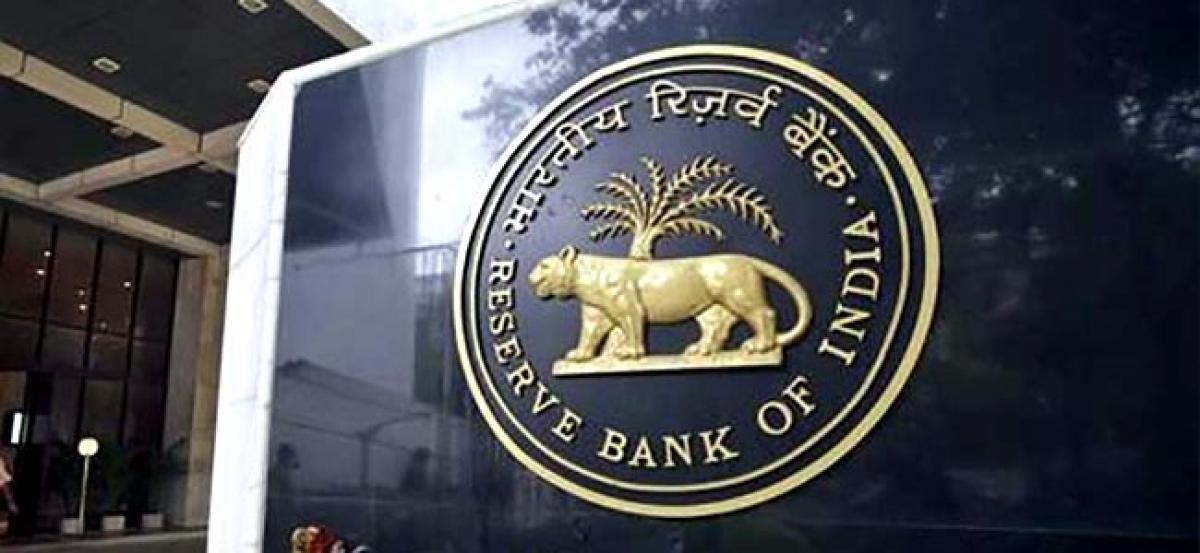Live
- Beyond the Data - Shreyas Mahimkar in pursuit of Innovation, passionate about learning
- Ravi Kiran Pagidi: Innovating in Cloud Data Solutions and Real-Time Processing
- 'Vere Level Office' Episode 4 Review: Fun, Emotions, and a Hint of Drama
- Durvas Jayaraman: Redefining Enterprise Software Architecture
- Breaking Boundaries in Microbiology and Business: Dr Saloni Sharma
- Two drown as Indian Navy speedboat rams into passenger ferry in Arabian Sea off Gateway of India
- RG Kar tragedy trial: Recording of statements by 50 witnesses completed
- New expressway links Lhasa with birthplace of Tibetan civilization
- 13 Dead as Ferry Capsizes Near Gateway of India; Over 100 Rescued
- PM Modi to Visit Kuwait for Two Days from December 21, First Indian PM Visit in 43 Years
Just In

With falling bank deposit rates hitting time deposits hard, people are turning to financial instruments like shares, mutual funds, debentures, currency and tax-free bonds for higher returns, says the Reserve Bank of India (RBI).
Kolkata: With falling bank deposit rates hitting time deposits hard, people are turning to financial instruments like shares, mutual funds, debentures, currency and tax-free bonds for higher returns, says the Reserve Bank of India (RBI).
Stakeholders feel the trend would continue and the bankers would be up against more competition from relatively high-yielding financial instruments in garnering deposits as long as the low-deposit-rates regime persists.
"Time deposits were muted by the moderation in deposit rates (both nominal and real). Large issuances of long-term tax-free bonds by various public sector units contributed to the deceleration in deposits, besides the higher returns on small savings which are not subject to tax deduction at source (TDS).
"As a result, scheduled commercial banks' (SCBs') deposits decelerated to 9.3 per cent in 2015-16, the lowest since 1963-64," said RBI's latest Annual Report.
Despite the downslide, the ratio of the households' net saving to gross national disposable income increased in the last fiscal because of the savers' appetite for other financial assets.
According to the RBI report, the household net financial savings rate increased to 7.7 per cent of gross national disposable income (GNDI) in 2015-16 from 7.5 per cent in 2014-15 and 7.4 per cent in 2013-14.
"The improvement reflected a higher rate of increase in gross financial assets in relation to that in financial liabilities (loans etc). The increase in gross financial assets was driven primarily by a turnaround in small savings and increases in investment in equities and mutual funds, tax-free bonds by public sector units and currency holdings even as the growth in bank deposits held by the households moderated," the report said.
The growth of deposits has been a challenge for the banking system in the recent past, with other alternatives providing higher returns.
"The moderation in systemic deposit growth (like recurring and fixed deposits) can also be partly attributed to the slowdown in credit off-takes. Many of them (banks) have sharply reduced their bulk or high cost deposits over the last year as they attempted to protect their profitability," ICRA Ltd's Senior VP, Financial Sector Rating, Karthik Srinivasan, told IANS.
But bankers say muted deposit growth is not a "worrying factor" unless and until credit flows increase.
"Moderation in deposit growth would not be a worrying factor for banks until credit growth picks up. If credit demand increases, banks would require more resources and only then could they consider increasing the deposit rates. At present bankers are looking to push up credit growth," Bandhan Bank Managing Director and CEO Chandra Shekhar Ghosh told IANS.
According to RBI data, households' financial assets as bank deposits grew only 3.8 percent in 2015-16 over the previous year. In contrast, households' assets in currency increased by 49.54 percent in the last fiscal. In shares and debentures, such assets soared by a whopping 72.25 percent in 2015-16 over the year-ago period.
According to the Association of Mutual Funds in India, the mutual fund industry's asset under management (AUM) has more than doubled in the last four years from Rs 5.87 trillion as on March 31, 2012, to Rs 12.33 trillion as on March 31, 2016.
Further, market capitalisation has grown manifold.
"The market has around 13 crore investors and has grown multiple times in the last 10 years. Of late, the market has got a few products which are well researched, small ticket and retail savvy," a National Stock Exchange spokesperson told IANS.
So long as the deposit rates remain low, alternative instruments like mutual funds, pension funds, insurance, bonds and equities will breathe down the banks' neck in resource mobilisation.
"Over the medium term, the banking system would face greater competition from alternate channels in mobilising deposits," Srinivasan said.
But experts said India being a bank-driven economy, the slowdown in the growth of deposits is a concern as access of funds to productive sectors could get curtailed.
However, banks are still perceived to be a safe avenue to park excess funds and consequently, if banks were to increase the deposit rates, the inflows would go up, he said.

© 2024 Hyderabad Media House Limited/The Hans India. All rights reserved. Powered by hocalwire.com







